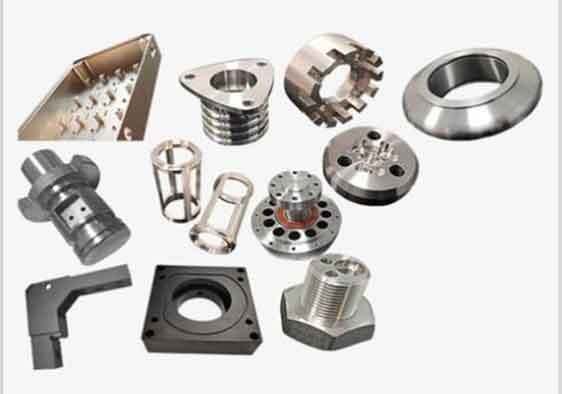CNC machining, an integral part of modern manufacturing, employs computerized controls to operate cutting and shaping machinery. Vital across diverse industries such as aerospace, automotive, and medical devices, CNC cutting machines deliver intricate and precise parts. This article explores the CNC machining parts manufacturing process, highlighting its phases and the precision it offers.

Design and Programming Phase:
The journey of CNC machining parts begins with design and programming. This phase entails creating CAD models and CNC programs to guide the cutting machines. Crucial decisions on materials and machining operations influence process efficiency and final product quality. CNC programming defines tool paths and cutting parameters, with verification and optimization using simulation software ensuring accuracy and efficiency.
Setup and Machining Phase:
Following program creation and verification, the setup and machining phase commences. Here, the workpiece is installed in the CNC cutting machine, and appropriate cutting tools are selected and calibrated. The machine executes the CNC program with exceptional precision, monitoring operations and adjusting parameters to maintain quality and efficiency.
Inspection, Quality Control, and Finishing Phase:
Post-machining, parts undergo inspection using precision measuring tools, ensuring adherence to CAD model specifications. Quality control procedures identify defects, if any, and ensure parts meet required standards. The finishing phase involves deburring, surface finishing, final inspection, and packaging. Deburring removes rough edges, while surface finishing enhances aesthetics and durability. Final inspection guarantees parts meet specifications and are defect-free.

The Power of Precision:
The manufacturing of CNC machining parts offers numerous advantages. Its high accuracy, repeatability, and fast production cater to high-volume runs. The technology excels in complex cutting operations, vital for industries like aerospace, automotive, and medical devices, requiring intricate and precise components.
Conclusion:
In conclusion, CNC machining parts manufacturing stands as a highly precise and efficient method. With its ability to produce complex and precise parts across various industries, it surpasses traditional machining processes. As CNC machining technology advances further, we anticipate even greater precision and efficiency, solidifying its role as a cornerstone in modern manufacturing.






Comments (0)